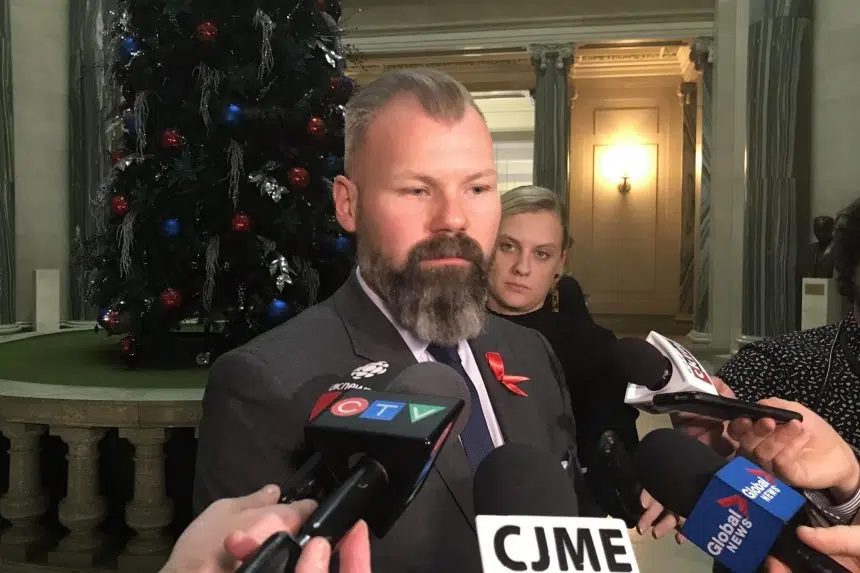Saskatchewan’s environment minister said he’s disappointed that the federal government is reducing the amount paid back to people in the carbon tax rebate.
“I’d like to say that I’m surprised, but I’m not … Obviously we’re disappointed in the news and, you know, Merry Christmas from the federal government,” Dustin Duncan said Tuesday afternoon.
On Monday, the Liberal government revealed it was reducing the rebate in three provinces that have not adopted carbon pricing models that meet federal requirements.
The biggest decrease is to be in Saskatchewan, where a family of four will qualify for rebates totalling $809 in 2020 — down from the 2019 projection of $903.
Duncan said he’ll be bringing that up with his federal counterpart, Jonathan Wilkinson, when the Liberal environment minister comes to Saskatchewan for a meeting this week.
Duncan said he’ll be asking Wilkinson what changed when it comes to the rebate. Duncan said there was just a federal election with campaign literature from the Liberals which talked about the rebate, but he didn’t see anything that mentioned the reduction.
Duncan said he’ll also be talking to Wilkinson about the deal New Brunswick recently made over the carbon tax.
New Brunswick became the first province that had rejected the carbon tax to turn around and then accept it. The deal reportedly ended up with 4.4 cents of carbon tax added per litre to gasoline sales, but the province also got to reduce the excise tax by three cents per litre on gasoline, resulting in a net increase of only 1.4 cents.
“If that’s the case, then what are we talking about?” Duncan wondered. “I think it really shows what this is really all about.
“This is about more of a signal than anything from the federal government. It’s really not about reducing emissions. I think it further shows that we have a pretty unequal patchwork of policy across the country.”
“If we’re going to add four cents a litre onto fuel and do a corresponding reduction of almost an equivalent amount, then how does this accomplish what the federal government says it’s going to accomplish?”
Duncan said he hasn’t specifically asked Wilkinson whether a similar deal would be open for Saskatchewan.
“As a government we’ll talk more about this in the new year, about what our options might be,” said Duncan. “First and foremost, we want to see how, certainly, the Alberta Court of Appeal (case) … goes first.”
Duncan said his government also wants to see how its Supreme Court of Canada challenge of the carbon tax goes before making any changes.
Duncan did give credit to Wilkinson for saying he had read the growth plan released by Saskatchewan this fall and noted that there’s a lot of interest in the province for low-carbon technology.
“I think (Wilkinson) signalled some areas where we can work together but I would say he didn’t go that far as to say that it could replace having a carbon tax in the province,” Duncan said. “But hope springs eternal, so we’ll see what happens.”











